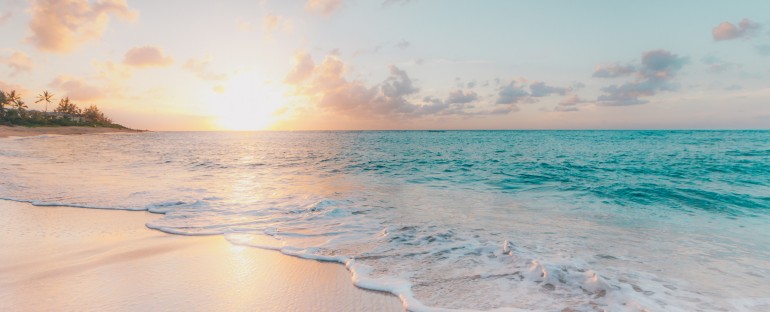This week has been particularly intense with the burning of the iconic Notre Dame Cathedral in Paris and the troubling political climate in the U.S. It’s also Easter week–for Christians around the world a time of dissolution and rebirth. It seems fitting to reflect on the gift of life and the importance of cherishing the present moment.
All of us who were in Hawaii on January 13, 2018, will never forget that fateful day. That Saturday morning we woke up to the Emergency Alert System issuing this alert over our phones, radio, and TV: “BALLISTIC MISSILE THREAT INBOUND TO HAWAII. SEEK IMMEDIATE SHELTER. THIS IS NOT A DRILL.” A wave of panic swept across Hawaii—on the beaches, at the resorts, on the streets. Thirty-eight terrifying minutes later we found out it was a false alarm. Although it was surreal and hard to wrap our minds around, it happened right in the middle of intensifying tensions with unpredictable North Korea, which made it quite believable. We hid in closets and bathtubs, called our loved ones to tell them goodbye, and reviewed our lives. Those of us who were around at the height of the Cold War experienced flashbacks to sirens, bomb shelters, and images of mushroom clouds and decimated landscapes. The relief and gratitude we experienced following the thirty-eight minutes were equally as intense as the initial shock and fear of annihilation.
There is nothing like a brush with death, whether real or imagined to be real, to wake us up to the fragility of life. Truly believing you are about to die is life-changing. It shows us how precious life really is, and the miracle that we are here in the first place through no conscious choice of our own. Working at hospice had a similar effect on me. All the things we hold dear, including our own life, can disappear in an instant. The value of this knowledge is that it can wake us up to the need to cherish the present moment, to find what is real and unending.
I recently saw a documentary on the life of comedienne Gilda Radner. She was diagnosed with cancer, went through treatment and subsequent remission. She held out hope she would be cured and go on to live the life she had planned. But the cancer came back, and it became clear she was going to lose the battle with her disease. Accepting there was nothing more she could do, she seemed to come to a place of surrender to her situation—a sense of peace with the realization that all she had was the present moment. No longer waiting for an uncertain future, she was determined to live fully each moment she was alive. Isn’t that all any of us have anyway? Do any of us have a guaranteed future? Of course, this doesn’t mean we should stop working toward our goals and fulfill our lives in the best way we can. But it does mean we can favor the present.
Can we live each moment, making the most of it? If not, we miss our lives—we put off living fully when we believe in the future. I saw this clearly during those thirty-eight minutes. And I saw it so many times working with patients at hospice—the peace that came with surrendering to the inescapable reality that they were going to die. Let’s not wait until we’re on our death beds, or until we are about to be vaporized by a nuclear bomb. We have the opportunity to wake up in the lives we are living right here and now and to discover that which never dies.
Hawaii wasn’t destroyed that fateful morning—it’s still here—a beautiful paradise in the middle of the Pacific. And we are still here too. Those of us alive on Earth today can choose to discover and express the beauty we all carry within no matter what is or isn’t happening in our inner and outer worlds. We can choose to live fully all our remaining moments.
Note to self: All you have is now. Be here for it. Make it beautiful.
Recent Posts
Recent Comments
- Terry Scott on CONTEMPLATING THE UNKNOWABLE
- Irene Kokatay on THE PATH OF SELF-KNOWLEDGE
- Terry on THE PATH OF SELF-KNOWLEDGE
- Irene Kokatay on LIVING IN INFINITY
- Terry Scott on LIVING IN INFINITY




